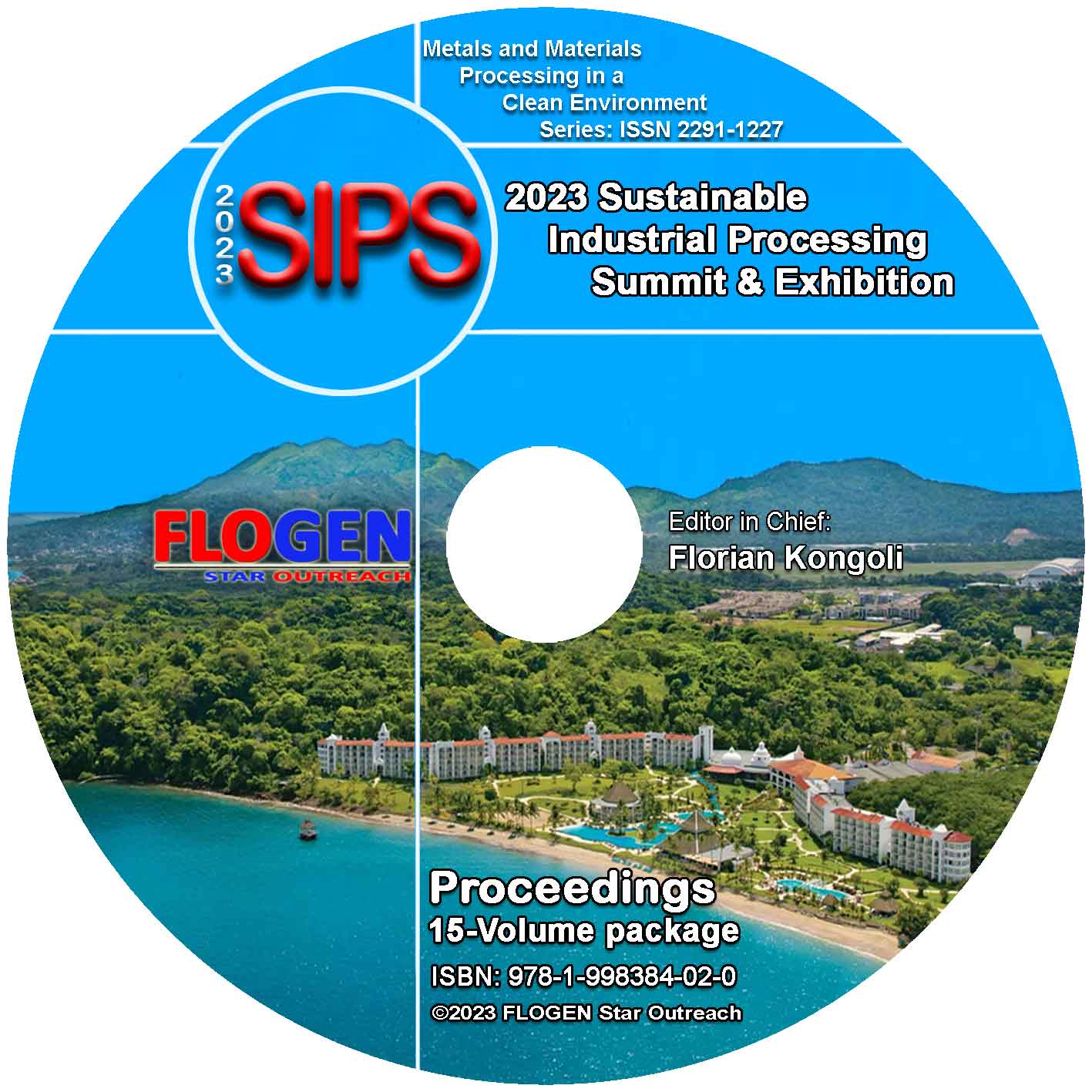2023-Sustainable Industrial Processing Summit
SIPS2023 Volume 5. Guerrant Intl. Symp /Covid-19 and Infectious Diseases
| Editors: | F. Kongoli, F. Murad, W. Petri, H. Inufusa, S. Heysell, J. Yedoyan |
| Publisher: | Flogen Star OUTREACH |
| Publication date: | 21 December 2023 |
| Pages: | 92 pages |
| ISBN: | 978-1-989820-80-3 (CD) |
| ISSN: | 2291-1227 (Metals and Materials Processing in a Clean Environment Series) |

CD shopping page
OVERVIEW OF CONSTRAINTS IN APPLYING RECENT ADVANCES IN BIOLOGICAL SCIENCES FOR SOCIETAL BENEFIT
Ranjan Ramasamy1;1CONSULTANT IN BIOLOGICAL SCIENCES, Abingdon, United Kingdom;
Type of Paper: Regular
Id Paper: 315
Topic: 68
Abstract:
Society has hugely benefitted from recent advances in biological sciences through numerous applications in medicine, agriculture and industry. Current trends in society, governance structures and communications are however beginning to constrain potential benefits in some ways. Limitations are illustrated with examples selected from our own findings on the impacts of global climate change on mosquito borne diseases [1] involving the adaptation of fresh water mosquito vectors to salinity in coastal areas [1,2], the decrease in dengue transmission during COVID-19 lockdown [3], the recent spread of the malaria vector Anopheles stephensi in South Asia and Africa [4], as well as the use of molecular diagnostic techniques for differentiating tick-borne Lyme Disease and Relapsing Fever Borreliosis [5].Â
The contribution made by the recently developed vaccines in saving lives and preventing severe illness due to the COVID-19 throughout the world is widely recognised. However, some avoidable hindrances in the global implementation of the COVID-19 vaccination program that could have further reduced morbidity and mortality from COVID-19, are highlighted as another example. Â
Â
Keywords:
Coronavirus; Epidemiological Monitoring; Infectious Diseases; Constraints in Applying Biological Science Advances; COVID-19 Vaccination; Global Climate Change and Mosquito-Borne Diseases; Molecular Diagnostics for Infectious DiseasesReferences:
[1] Ramasamy R, Surendran SN. Front Physiol. 2012, 3:198. doi: 10.3389/fphys.2012.0198.[2] Ramasamy R, Surendran SN, Jude PJ, Dharshini S, Vinobaba M. PLoS Negl Trop Dis. 2011, 5:11. e1369. doi: 10.1371/journal.pntd.0001369.
[3] Surendran SN, Nagulan R, Tharsan A, Sivabalakrishnan K, Ramasamy R. Trop Med Infect Dis. 2022, 7(10):287. doi: 10.3390/tropicalmed7100287.
[4] Surendran SN, Sivabalakrishnan K, Sivasingham A, Jayadas TTP, Karvannan K, Santhirasegaram S, Gajapathy K, Senthilnanthanan M, Karunaratne SP, Ramasamy R. Front Public Health. 2019, 7:53. doi: 10.3389/fpubh.2019.00053.
[5] Shah JS, Liu S, Du Cruz I, Poruri A, Maynard R, Shkilna M, Korda M, Klishch I, Zaporozhan S, Shtokailo K, Andreychyn M, Stricker RB, Ramasamy R. Healthcare (Basel). 2019, 7(4):121. doi: 10.3390/healthcare7040121.